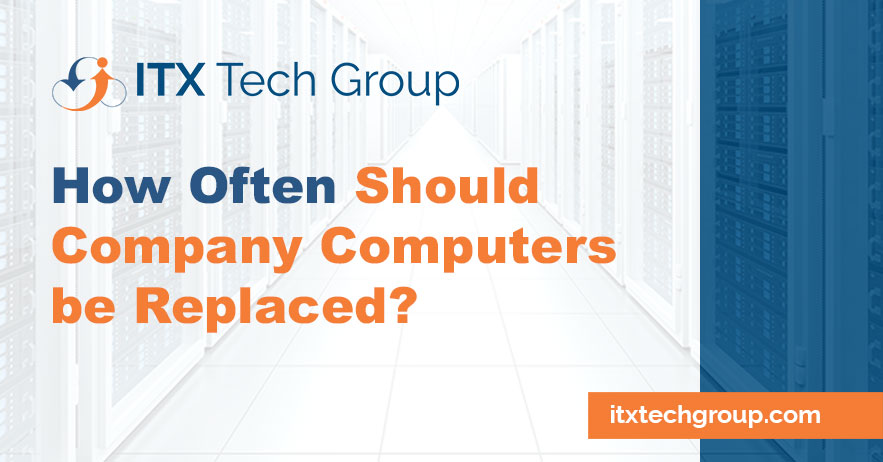Computers serve as the backbone of almost every business operation. As companies heavily rely on these workhorses, the question of how often they should replace their computers becomes crucial.
While some companies prefer to stick with their devices until they become obsolete, others adopt a more proactive approach to stay ahead of the technology curve.
In this article, we will explore the factors that influence the optimal computer replacement cycle for businesses and help you determine the right balance between cost-effectiveness and efficiency.
Technological Advancements
The rapid pace of technological advancements has a significant impact on the lifecycle of computers. New hardware and software innovations emerge frequently, offering improved performance, enhanced security features, and greater energy efficiency.
Keeping up with these advancements is essential to ensure that your company remains competitive and maintains a productive workforce.
Generally, a computer replacement cycle of three to five years is a reasonable timeframe to take advantage of new technologies without falling too far behind.
Performance and Productivity
As computers age, their performance may decline, leading to slower processing speeds and increased response times. This can negatively impact employee productivity, causing delays in tasks and projects.
Regularly upgrading computers ensures that your workforce has access to the latest hardware capabilities, enabling them to work efficiently and meet deadlines effectively.
Security and Software Support
Security threats are constantly evolving, and older computers may not have the necessary hardware or firmware to defend against modern cyber threats adequately. Running outdated operating systems and software can also make your systems vulnerable to security breaches.
Manufacturers often discontinue software support and updates for older models, leaving them more susceptible to potential attacks. Regular computer replacements guarantee that your company maintains a robust security posture and reduces the risk of data breaches.
Total Cost of Ownership (TCO)
While frequent computer replacements offer undeniable advantages, they also come with associated costs. The total cost of ownership (TCO) includes not just the initial purchase cost but also maintenance, software licensing, and potential productivity losses during the transition phase.
Striking a balance between TCO and the benefits of upgrading requires careful evaluation. By monitoring the maintenance costs and assessing the decrease in productivity due to outdated hardware, companies can determine an optimal replacement cycle that minimizes long-term expenses.
Environmental Considerations
As environmental consciousness grows, companies are encouraged to adopt sustainable practices. Regularly upgrading computers can contribute to electronic waste generation.
To address this concern, businesses can consider environmentally-friendly disposal and recycling options or explore leasing programs that involve periodic equipment refreshes with the manufacturer.
Industry-Specific Needs
Certain industries demand more frequent computer replacements due to specialized software requirements or compliance regulations.
Healthcare, finance, and creative sectors, for instance, may need to update hardware more frequently to meet the demands of resource-intensive applications and ensure data security and privacy compliance.
Conclusion
The frequency of computer replacements for companies depends on a delicate balance between technological advancements, performance needs, security concerns, cost-effectiveness, and industry-specific requirements.
While a typical replacement cycle of three to five years strikes a reasonable balance for many businesses, it is crucial to conduct a thorough analysis of your company’s unique needs.
Regularly upgrading computers ensures that your workforce remains productive, your data stays secure, and your company stays ahead in an ever-evolving digital landscape.
Remember, technology is a tool to empower your business, and strategic computer replacements are a vital step in harnessing that power for sustained success.
ITX Tech Group has been serving small, medium, and large scale businesses with their IT support needs all over the United States since 2011, so we’re confident we can provide you with affordable, professional IT solutions for years to come!
Connect with us for a free consultation to discuss your business technology needs.

